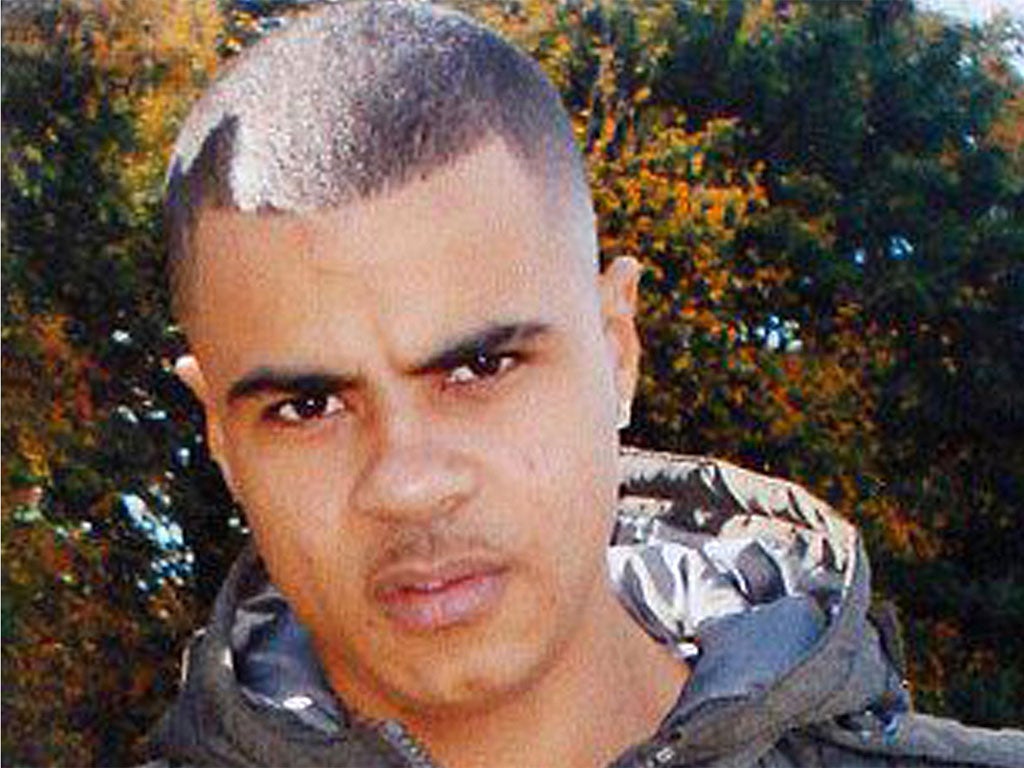Mark Duggan’s family sue Metropolitan Police over 2011 shooting that sparked London riots
An inquest previously found Duggan was lawfully killed, and a watchdog cleared police officers of wrongdoing

Mark Duggan’s family are suing the Metropolitan Police over the fatal shooting that sparked nationwide riots in 2011.
An inquest jury found the 29-year-old was lawfully killed after armed officers stopped the minicab he was travelling in because of intelligence he was carrying a gun.
A police watchdog, which cleared officers of wrongdoing, found Duggan was likely to have been throwing the weapon to one side as he was shot, but conflicting witness accounts left his family unsatisfied and communities deeply divided over the case.
Civil proceedings being brought by his mother Pamela Duggan, and some of his children, accuse Scotland Yard of liability for the death and seek compensation.
A spokesperson for the Metropolitan Police said: “We have received a civil claim from Mark Duggan’s family. It would be inappropriate to discuss further while the matter is ongoing.”
Supporters hope that a lower standard of proof in civil proceedings, where findings must be based on the “balance of probabilities”, could produce a different outcome than past proceedings.
Duggan was shot dead by an armed officer known as V53 on 4 August 2011, sparking protests in Tottenham that spiralled into days of riots, arson and looting in London, Birmingham, Bristol, Manchester and other English cities.
A three-month long inquest held in 2014 examined evidence from more than 93 witnesses to conclude that Duggan was lawfully killed.
It heard that Duggan was an active member of one of the most serious criminal gangs in Europe and was believed to be responsible for shooting a man in a nightclub, with intelligence reports suggesting he was storing drugs and seeking a gun.
Duggan collected a handgun from drug dealer Kevin Hutchinson-Foster, who was later jailed for supplying the weapon, minutes before he was shot dead.
Lawyers representing his family suggested police had planted a handgun found on grass 14ft away from his body, but the jury concluded that Duggan had discarded it as the car came to a stop.
V53 said he thought the weapon, hidden in a sock, was pointed in his direction and he opened fire in self-defence. The jury decided the officer “honestly believed” his life was at risk.
But it found unanimously that both Scotland Yard and the Serious Organised Crime Agency could have done more to “gather and react” to intelligence before the shooting.
Duggan’s family launched a legal challenge over the inquest’s conclusions but in 2017, Court of Appeal judges ruled the eight to two majority verdict was lawful.
The armed officers involved in the shooting were cleared of any wrongdoing by the Independent Police Complaints Commission in 2015, following a three-and-a-half year investigation.
The watchdog found there was “no credible evidence” to uphold complaints by Duggan’s family that police had moved the gun or that V53 did not use lawful force.
It called for the use of audio and video recording in undercover firearms operations, because the lack of evidence made it “difficult, and on occasions impossible, to know with absolute certainty what happened”.
Armed police officers across the UK now wear body-worn cameras, which are also being rolled out to regular officers in some forces.
